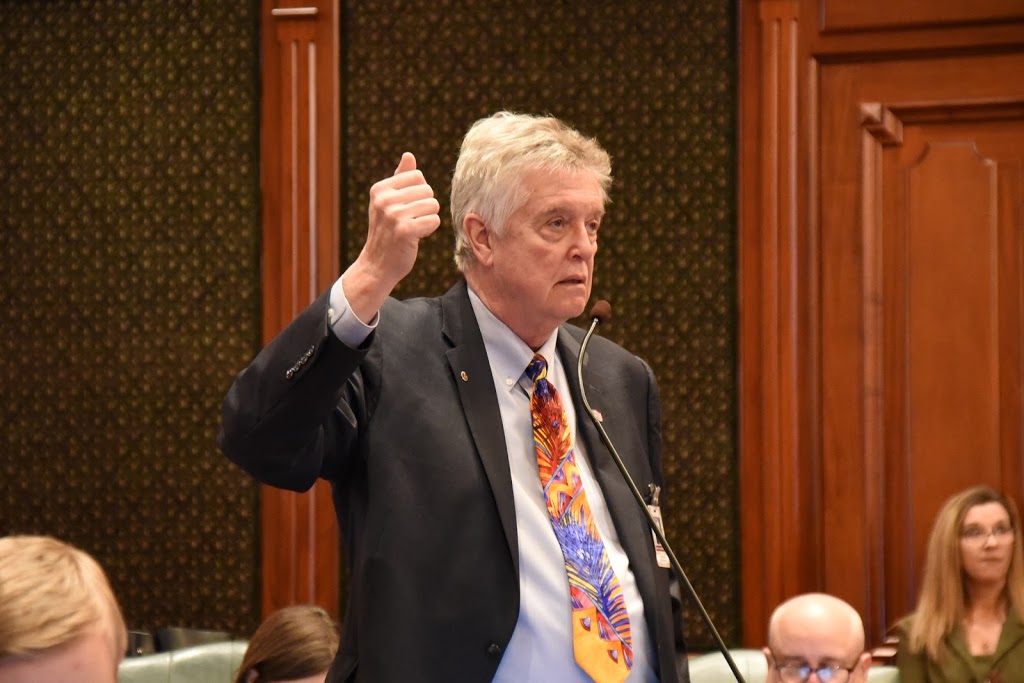Legislation that aims to address the teacher and substitute teacher shortage in Illinois received unanimous support in the House of Representatives on Wednesday. State Representative Steve Reick (R-Woodstock) was a Chief Co-Sponsor of the bill.
HB 5627 includes several provisions that seek to relieve the teacher and substitute teacher shortage in Illinois by making it easier for educators coming into Illinois from other states to obtain licensure and restructuring substitute teacher licensure requirements.
“I’ve been working with a retired teacher from Woodstock who was named one of the top ten educators in the state during his tenure, but he has found the process to become a substitute teacher to be tedious and extremely expensive,” said Reick. “Former teachers would make excellent substitute teachers, but for some reason the substitute teacher requirements for retired teachers are much more stringent and involved than the requirements for any other individual who holds a college degree in any field of study.”
HB 5627 would provide for the following:
- Full reciprocity of out-of-state applicants for an Illinois Professional Educator License, which would allow out-of-state licensed educators to teach in Illinois without meeting additional requirements
- Makes numerous changes to the Substitute Teaching License law to ease the process for out-of-state licensed teachers and retired teachers with lapsed licenses to work as substitute teachers
- Eases requirements for the timing of completion of professional development
- Retired educators could work in school districts through June 30, 2020 a total of 120 paid days or 600 paid hours each school year without infringing on earned pension benefits
- A short-term substitute teaching license would be established for individuals who hold an associate’s degree or have earned at least 60 hours toward a degree from an accredited institution of higher education
“These are excellent changes that should ease the process for those who would like to teach in Illinois schools,” Reick said. “The standards remain high for the caliber of individual we would entrust to our public school classrooms, but much of the red tape and expense is removed.”
